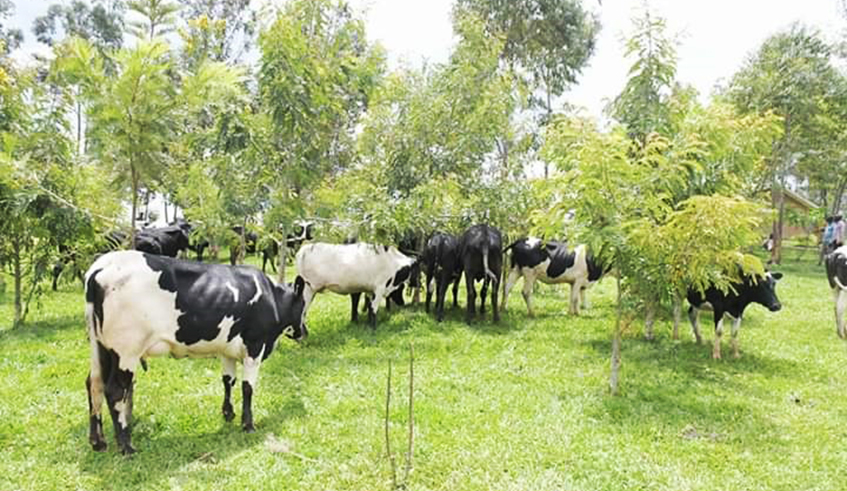

Following the lifting of a livestock quarantine in three districts in Eastern Province, farmers were urged to remain vigilant as the areas are in high risk of livestock disease outbreaks.
On Wednesday, July 29, the Ministry of Agriculture and Animal Resources lifted a livestock movement ban, which had been imposed over a month ago in nine sectors to control the spread of foot-and-mouth disease (FMD).
An FMD quarantine prior to this lasted more than six months between May 2017 and January 2018 in districts of Nyagatare, Kayonza and Gatsibo.
"Epidemiologically, FMD usually occurs during dry season, and not just in Eastern Province,” said Dr Solange Uwituze, Deputy Director General in charge of Animal Resources Research and Technology Transfer at Rwanda Agriculture Board (RAB).
She told The New Times that this is mainly due to the fact that stress levels rise in cattle during dry season, while immunity goes down, and the infection in virus carriers turns into disease.
Uwituze explained that the eastern region is "in high risk” of the disease because FMD is endemic in neighbouring countries, which becomes easy for it to cross into the country through both animal and human movement.
Wild animals like buffalos and gazelle can spread this disease too, and cattle that had been already infected in previous outbreaks can remain the virus carriers and the source of new outbreak, according to the animal doctor.
The month-long quarantine affected farmers and residents in general in the sectors of Gahini, Ndego, Mwiri and Murundi in Kayonza District, Nasho and Mpanga in Kirehe District, and, Kiziguro, Rwimbogo and Kabarore in Gatsibo District.
Jean Bosco Ndungutse, the Chairperson of Private Sector Federation (PSF) in Eastern Province, told The New Times the quarantine affected the farmers’ income because they were not allowed to sell cows, sheep and goat or their production like meat.
"But we all knew that banning the movements was not a bad thing for us, because it was about protecting our livestock,” he pointed.
But everything is fine now, the farmers can sell their livestock again, Ndungutse added.
Peter Nkuranga, cattle farmer in Rwikiniro, Rwimbogo Sector, Gatsibo District, said, "When they close livestock markets, it was impossible for the farmer who wanted to sell their cow and bring the money home for the family progress, to pay health insurance or do anything.”
Covid-19 had already affected farmers through the reduced demand for dairy products in restaurants and hotels, and the quarantine preventing cattle trade made things from "bad to worse”, according to Nkuranga.
"We should not be complacent, though, we should still be watchful and protective of our livestock,” the farmer declared.
This was also echoed by Uwituze, who said that farmers in the area "should keep in mind that they are in high risk zone” of the FMD, especially those nearby the borders of the countries where the disease is always active.
Eastern Province shares the border with Uganda and Tanzania.
It is also home to Akagera National Park, which is home for dozens of wild animal species.
She added that the farmers should make sure their livestock are vaccinated and they should always adhere to animal movement guidelines, which oblige use of trucks to move livestock from one place to another.
"They should report on time in case there is any suspicion of the foot-and-mouth disease in to order to control its spread,” Uwituze reminded.


